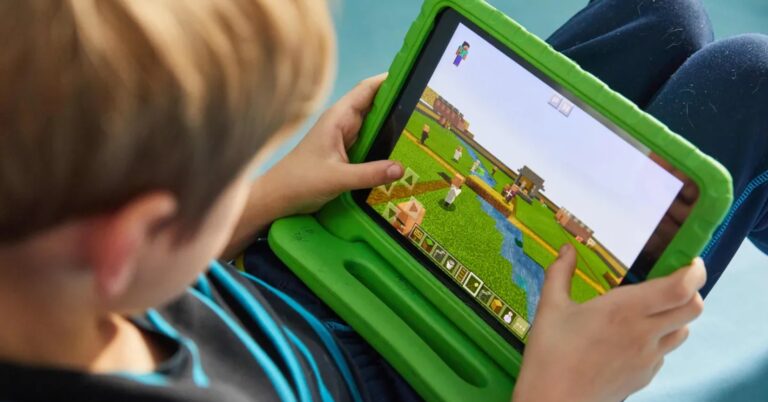Embracing failure is an indispensable aspect of life, particularly when it comes to guiding our children through their journey.
As parents, our role isn’t just to shield them from failure, but to equip them with the skills to cope and bounce back.
Building resilience in our kids is about showing them that failure isn’t the end of the world, but a stepping stone towards success.
In this article, I’ll share 8 effective strategies that can help your child handle failure and cultivate resilience. You’ll find these suggestions practical, easy to apply, and most importantly, designed to empower your child.
1) Embrace the failure
The first and perhaps most crucial step towards helping your child deal with failure is to normalize it.
In our society, failure is often seen as something to be avoided at all costs. But the reality is, failure is a part of life and it’s through mistakes that we learn and grow.
As parents, we can help our child understand this by not shying away from their failures. Instead, we should encourage them to embrace it as a learning opportunity.
This doesn’t mean celebrating every mistake they make. Rather, it’s about helping them see that each failure is a chance to learn something new, and to improve for the future.
By doing this, we can help our children shift their mindset from viewing failure as something negative, into seeing it as an essential stepping stone towards success.
This is our first strategy to help your child deal with failure and build resilience. Embracing failure isn’t about encouraging mistakes, but about fostering a learning environment where they’re viewed as opportunities for growth.
2) Teach them problem-solving skills
I still remember when my own daughter faced her first big failure. She was in a school spelling bee and misspelled a word she had practiced a hundred times. She was devastated, but it was a great opportunity for us to work on problem-solving skills.
We sat down together and went through what happened. We talked about how she could have approached the word differently, sounding it out syllable by syllable. We discussed strategies for calming nerves, like deep breathing and visualization.
In doing this, we didn’t just talk about the failure, but we focused on finding solutions and strategies for the future. This wasn’t about fixing the past, but preparing for future challenges.
By teaching our children problem-solving skills, we empower them to handle failures on their own. It goes beyond aiding them in overcoming a particular failure; it’s about providing them with the tools to confront future setbacks directly.
This approach has helped my daughter become more resilient and confident in facing challenges. Trust me; it can work for your child too!
3) Provide positive reinforcement
When a child fails, it’s vital to focus on the effort they put in rather than the result. If they worked hard and gave it their all, that’s what truly counts.
The goal is to help them understand that success isn’t just about winning or achieving a goal, but about the journey and the effort put into reaching it.
By providing positive reinforcement for their efforts, we encourage our children to keep trying, even when things don’t go as planned. This reinforces their resilience and helps them understand that setbacks are just part of the path to success.
4) Model resilience
As parents, we are our children’s first and most influential teachers. The way we handle our own failures can significantly impact how our children deal with their setbacks.
When we encounter failure, it’s essential to handle it with grace and resilience. Show your child that it’s okay to be upset or disappointed, but also demonstrate how to bounce back and continue moving forward.
For instance, when you make a mistake at work, share the experience with your child. Talk about how it felt, what you learned from it, and what steps you’re taking to overcome the setback.
Modeling resilience, we can teach our children that it’s not the failure that defines us, but how we respond to it. This can be a powerful lesson in building their own resilience.
5) Encourage a growth mindset
One of the most effective ways to help your child deal with failure is to foster a growth mindset.
A growth mindset is the belief that abilities and intelligence can be developed through dedication, effort, and hard work. It’s the opposite of a fixed mindset, where individuals believe their talents are innate gifts.
When children have a growth mindset, they understand that they can improve through practice and persistence. They see failure not as a reflection of their abilities, but as a stepping stone towards improvement.
Encourage your child to view challenges as opportunities for growth. Remind them that it’s okay not to know everything and that learning is a continuous journey.
6) Be there for them
At the end of the day, what our children need most from us during their struggles is our unconditional love and support.
Failure can often feel isolating, especially for a child. They might feel like they’re alone in their struggles, and that can be overwhelming.
We need to ensure our children know that they’re not alone. We need to be there for them, to listen to their fears and frustrations without judgment or criticism.
Instead of simply solving their problems, it involves providing a safe space where they can express their feelings and thoughts. Sometimes, all they need is a shoulder to lean on, an understanding ear, and the reassurance that they are loved no matter what.
Our support can give them the strength to face their failures and the courage to try again.
7) Discuss famous failures
I remember one evening when my daughter came home from school feeling completely defeated. She had failed a math test despite studying hard for it. She felt like she was the only one who ever failed.
To help her see failure in a different light, we started talking about famous people who had experienced significant failures before they found success. We discussed how Thomas Edison made thousands of unsuccessful attempts before inventing the light bulb. We talked about how J.K. Rowling was rejected by multiple publishers before Harry Potter was accepted.
This conversation helped her realize that everyone experiences failure, even those who seem incredibly successful. More importantly, it showed her that failure doesn’t mean the end, but often serves as a stepping stone to success.
By discussing famous failures, we can help our children understand that everyone stumbles, and it’s how we pick ourselves up that truly matters.
8) Show them it’s okay to ask for help
Failure can often lead to feelings of helplessness. It’s significant for our children to know that it’s okay to ask for help during these times.
Teaching them that seeking help isn’t a sign of weakness, but a strength, can empower them to reach out when they’re struggling.
Whether it’s asking a teacher for extra help, talking to a friend about their feelings, or even reaching out to a counselor, knowing when and how to ask for help is a vital resilience skill.
Demonstrating the value of seeking assistance, we teach our children that they don’t have to face challenges alone, and that there are always resources available to support them through their failures.
Final thoughts: It’s a journey
The journey of teaching our children to deal with failure and build resilience is a long one, filled with its own trials and tribulations.
Resilience isn’t about never experiencing failure; it’s about learning how to rise after falling. And this is a lesson that takes time, patience, and repeated experiences.
It’s also important to keep in mind that each child is unique. What works for one may not work for another. As parents, we must be flexible in our approaches, always ready to adapt and pivot as needed.
As American educator and author Haim G. Ginott once said, “Children are like wet cement. Whatever falls on them makes an impression.”
Our attitudes and responses towards failures will leave lasting impacts on our children. If we can show them that failure is not something to be feared but a stepping stone towards growth, we can help them build the resilience they need for life.
As we conclude this discussion, take a moment to reflect on your own relationship with failure. How do you react to setbacks? What message are your actions and words sending to your child? Could you be doing more to help them build their resilience?
The answers to these questions might just be the key to helping your child navigate the ups and downs of life with grace, courage, and resilience.







